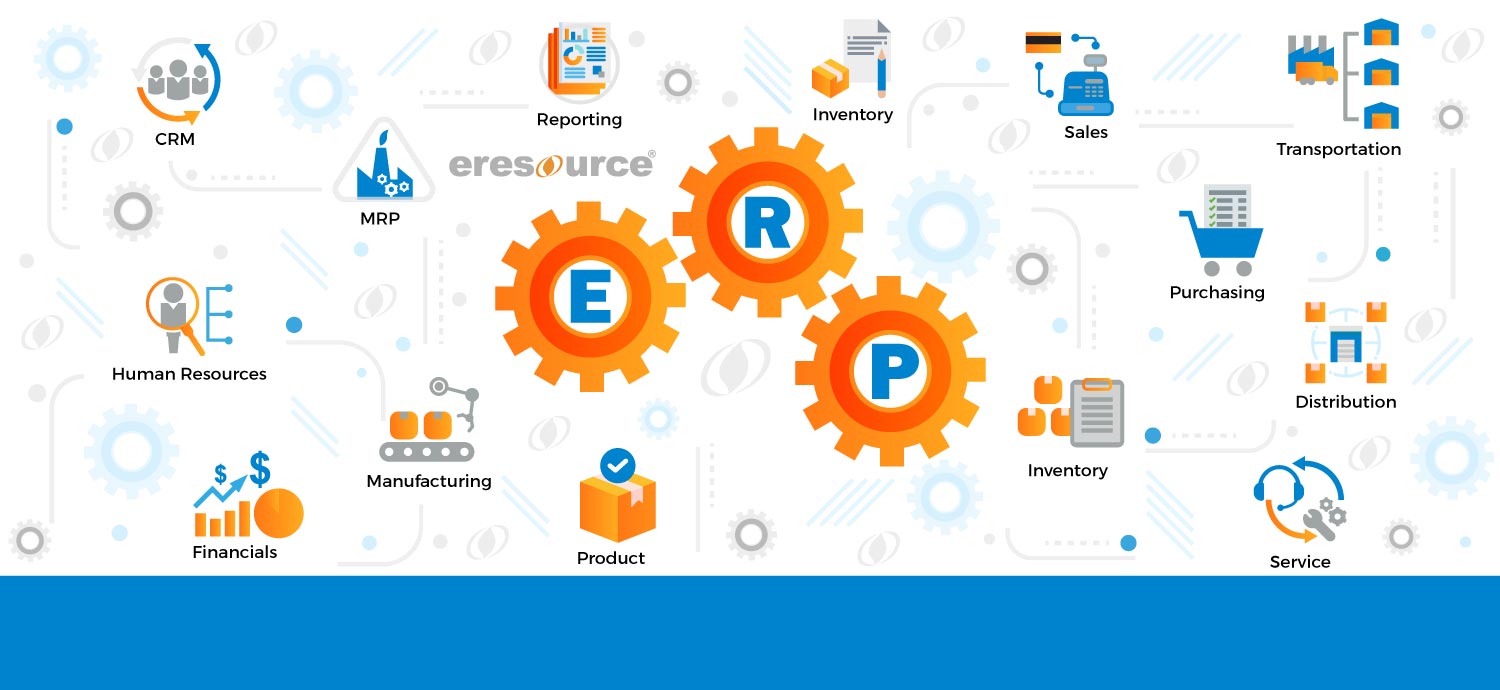Enterprise Resource Planning system, popularly known as ERP system, the descendant of MRPII offers the answer to the economic and productivity troubles of manufacturing and service enterprises. Thus, the ERP system has become very popular as an enterprise management software tool.
ERP is a Software application that provides an organization with functionality for two or more systems. While some ERP packages initially covered two to three functions for an organization most ERP systems today cover almost all the business functions of an organization.
As the name suggests, the term ERP referred to how a large organization planned to use a organization’s wide resources. It was the larger companies that have opted to use the ERP systems initially. However, the use of ERP has changed and today the term can refer to any type of company, no matter what industry it falls in. In fact, ERP systems are used in almost any type of organization – large or small.
The latest ERP tools available in the market today can cover a wide range of functions and integrate them into one unified database. For instance, functions such as Human Resources, Supply Chain Management, Customer Relations Management, Financials, Manufacturing functions and Warehouse Management functions were all once stand alone software applications, usually housed with their own database and network, can now fit under one umbrella called ERP.
Popularity of the ERP system has grown with its vast usage among the all kind of industries, Today majority of the midsize organizations are using ERP to support a variety of business issues, including globalization, lean manufacturing, conducting e-business, consolidation, shared services, collaborating with suppliers and meeting the requirements of new customers.
In today’s competitive business world usage of ERP system is becoming a must for any organization to meet the challenges faced in their business process. Studies also reveal that very few midsize companies that don’t already have an ERP implemented are facing numerous problems in their production and sales departments.
Web-based ERP
Of late many of the organization consider Web-enabled ERP as their most important and strategic platform because it provides a solid foundation and information backbone for eBusiness. When a business application like an ERP system is enhanced with the eBusiness capability, i.e. making it a web-based ebusiness enabled ERP, they supercharge each other. eBusiness is the best vehicle to share business information with partners for creating major B2B synergies.
A fully integrated web-based ERP will capture and create accurate, consistent and timely relevant data, and assist in intelligent business decision-making. The impact of ERP/e-Business integration is substantial, ranging from reduced inventory and personnel level to improved order and cash management. It also results in improved customer responsiveness, reduced IT costs and the availability for value-added activities.
A clear advantage of the web-based ERP solution is that remote users like executives and sales representatives can access the company system with any browser, which is much more convenient than going through a laptop configured for Terminal Services. A quick and on-time implementation of the solution can be done on your existing configuration set up. That means you do not need to upgrade your network for Windows/Exchange Server and SQL Server database.
Web-based ERP removes your headache from the Investment made towards time and cost in the maintenance of the server & other hardware.
Also Read – ERP for trading industry
Categories
Register for Free Demo!
Recent Post
-

eresource ERP 360 - an
11th Apr 2019 -

A competitive ERP system for
17th Apr 2019 -

Auto components manufacturing industry has
17th Apr 2019 -

Make the best use of
17th Apr 2019







